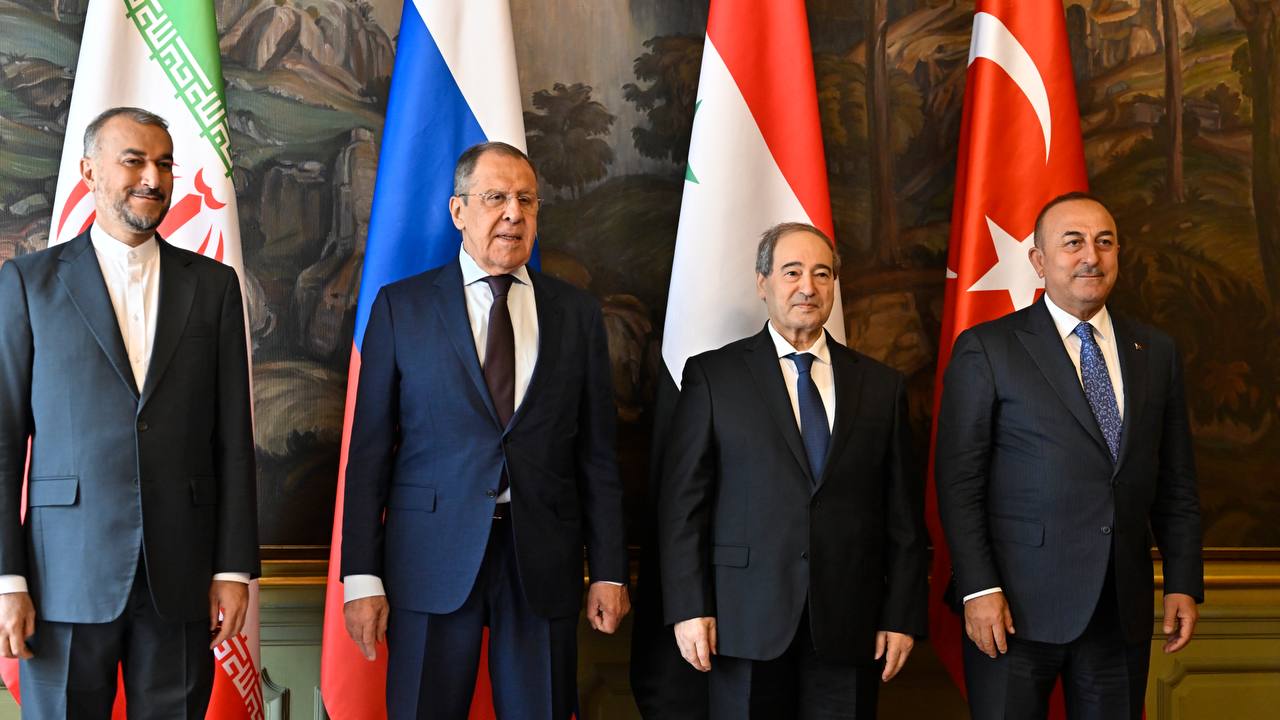
As reported by Turkish media outlets closely aligned with the government, doubts have been raised over the progress of normalization talks between Turkey and the Syrian regime, mediated by Russia and with Iran’s participation. The reports suggest an uncertain future lies ahead for these discussions. Recent statements from officials have revealed significant obstacles hindering the negotiation process, despite Russia’s talk of coordination for a meeting between President Recep Tayyip Erdogan and Assad.
Turkey’s “Sabah” newspaper, known for its proximity to the government, stated in a recent report that the ongoing talks are marked by “uncertainty” and face an uncertain future. Since last April, doubts have emerged regarding the feasibility of successfully achieving the desired goals through these negotiations.
The complex nature of the Syrian conflict, differing priorities among external parties, and the ambiguous strategic behavior of Bashar al-Assad’s regime are cited as reasons for the current state of talks. The weakened capacities of the Syrian regime are also contributing factors.
According to the newspaper, describing the ongoing process between the two parties as “normalization” is imprecise and overly optimistic. True normalization necessitates meeting three prerequisites related to Syria’s sovereignty, regional security, and political stability—none of which have been fulfilled so far.
The report also highlights the absence of a clear approach for Ankara and Damascus to coordinate and cooperate against terrorist organizations like the Kurdistan Workers’ Party (PKK) and the People’s Protection Units (YPG), key components of the Syrian Democratic Forces (SDF), which Turkey perceives as arms of the PKK in Syria.
To make progress or achieve a breakthrough, Ankara and Damascus need to make significant changes to their stances concerning the YPG. The differences in prioritizing issues by both parties remain the main factor behind the stagnation in the negotiation process.
While Damascus insists on the withdrawal of Turkish forces from northern Syria as a precondition for normalization, Ankara emphasizes that withdrawal cannot occur until its border security is guaranteed, and the terrorism threat is eliminated. The Syrian regime army’s current inability to assert control over the shared border further complicates matters.
However, prominent Turkish commentator Shadat Argen, writing for the government-leaning “Hurriyet” newspaper, notes that despite attempts to advance the talks, relations with the Syrian regime have not yet achieved “concrete normalization.” Unlike Turkey’s previous engagements with Saudi Arabia, the UAE, and even Egypt, tangible progress in relations with the Assad regime has been slow.
Argen suggests that achieving improved relations with Damascus will be exceedingly challenging. Recent statements by Assad and his Defense Minister Ali Mahmoud Abbas indicate a lack of willingness to meet Erdogan’s conditions. The two leaders asserted that Turkey must withdraw from Syrian territory before any talks of normalization can occur.
While repeated meetings between Turkish and regime officials have given an impression of potential normalization, they have yet to yield substantial results. The road mapping discussions, facilitated by Russia and discussed during the 20th Astana process meeting, underscore the vast differences between Ankara and Damascus at this stage.
With tensions continuing on the ground, Turkey’s military has deployed more than 30 trucks containing cement blocks, logistical materials, military armored vehicles, and equipment to construct walls and tunnels near its military points along the border with Syria’s Idlib province. Similarly, the US military conducted exercises with the Kurdish People’s Protection Units (YPG) in Syria’s Hasakah province.









